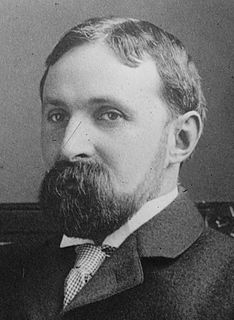A Quote by Olaf Stapledon
We have no government and no laws, if by law is meant a stereotyped convention supported by force, and not to be altered without the aid of cumbersome machinery.
Related Quotes
I will now add what I do not like. First, the omission of a bill of rights providing clearly and without the aid of sophisms for freedom of religion, freedom of the press, protection against standing armies, restriction against monopolies, the eternal and unremitting force of the habeas corpus laws, and trials by jury in all matters of fact triable by the laws of the land and not by the law of nations.
The "establishment of religion" clause of the First Amendment means at least this: Neither a state nor the Federal Government can set up a church. Neither can pass laws which aid one religion, aid all religions, or prefer one religion over another. Neither can force nor influence a person to go to or to remain away from church against his will or force him to profess a belief or disbelief in any religion.
It is urged that the use of the masculine pronouns he, his, and him in all the constitutions and laws, is proof that only men were meant to be included in their provisions. If you insist on this version of the letter of the law, we shall insist that you be consistent and accept the other horn of the dilemma, which would compel you to exempt women from taxation for the support of the government and from penalties for the violation of laws. There is no she or her or hers in the tax laws, and this is equally true of all the criminal laws.
Let us hold fast the great truth, that communities are responsible, as well as individuals; that no government is respectable which is not just. Without unspotted purity of public faith, without sacred public principle, fidelity, and honor, no machinery of laws, can give dignity to political society.
We repeat and again reaffirm that neither a State nor the Federal Government can constitutionally force a person "to profess a belief or disbelief in any religion." Neither can constitutionally pass laws or impose requirements which aid all religions as against nonbelievers, and neither can aid those religions based on a belief in the existence of God as against those religions founded on different beliefs.
The Devil is perfectly willing that the church should multiply its organizations and its deftly contrived machinery for the conquest of the world for Christ, if it will only give up praying...The Devil is not afraid of machinery; he is only afraid of God. And machinery without prayer is machinery without God.
There’s no way to rule innocent men. The only power any government has is the power to crack down on criminals. Well, when there aren’t enough criminals, one makes them. One declares so many things to be a crime that it becomes impossible for me to live without breaking laws. Who wants a nation of law-abiding citizens? What’s there in that for anyone? But just pass the kind of laws that can neither be observed or enforced nor objectively interpreted - and you create a nation of law-breakers - and then you cash in on guilt.
The nature of the economic system should be a matter for public choice, and free market capitalism should not be accepted without any discussion of the rich variety of alternatives ... Unlike civil laws, economic laws are imposed on people with all the authority of immutable laws of nature. But the economy is created by people, supported by government intervention, regulation, statute and subsidy, and implemented in such a way that it gives substantial wealth and power to a privileged few, while the majority face a life of relentless work, stress and periodic financial insecurity.








































